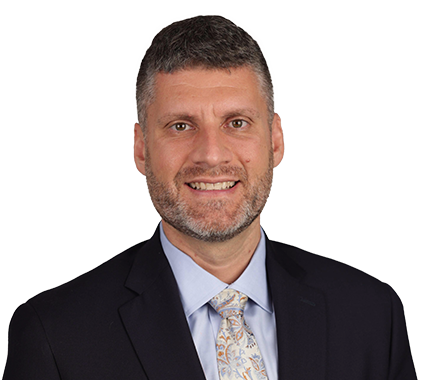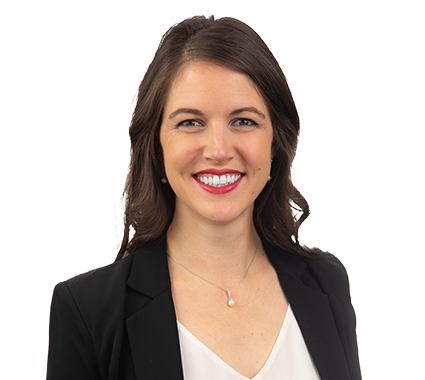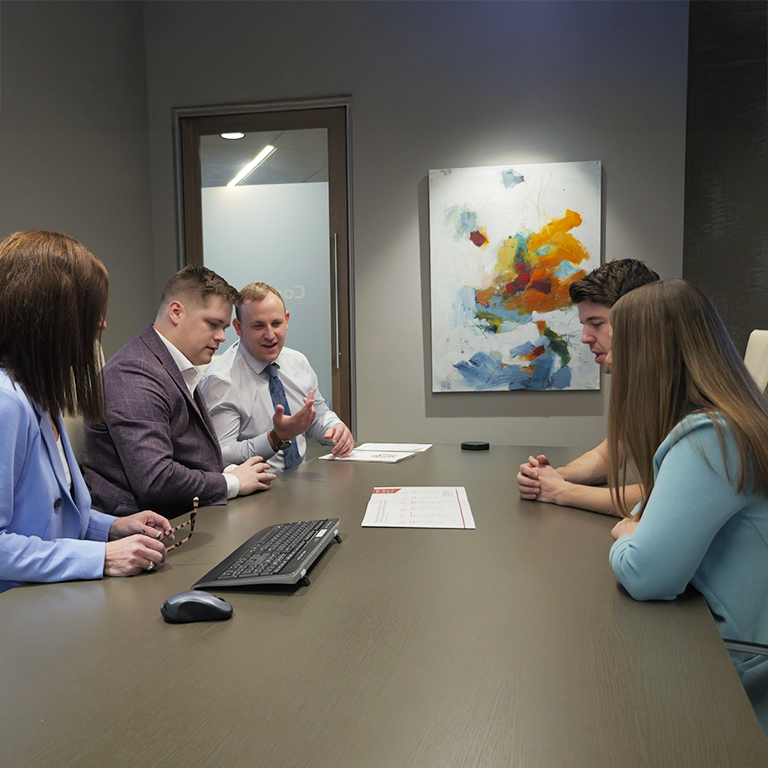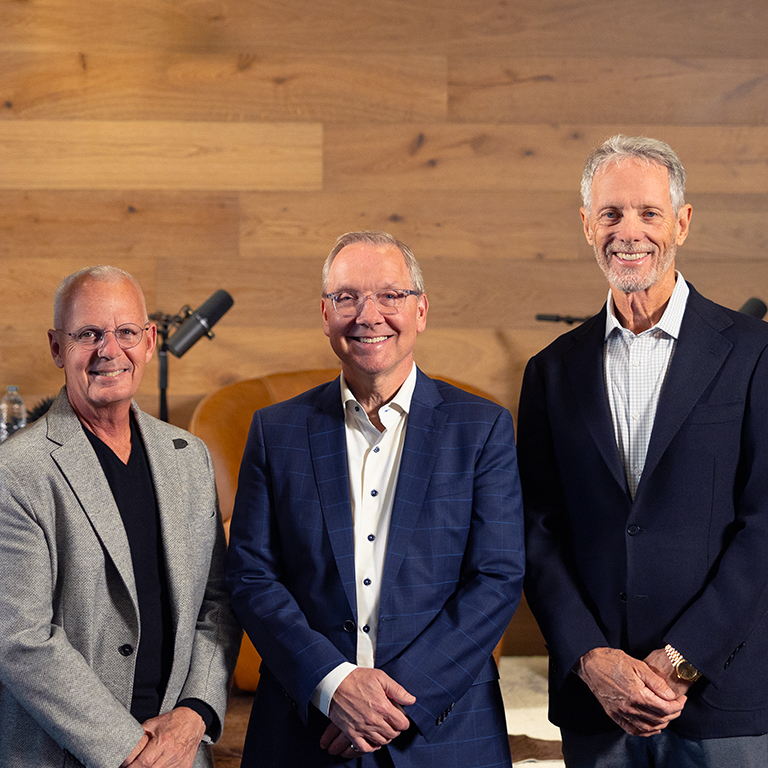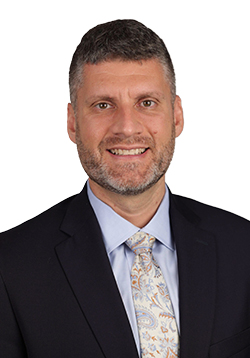
Can you imagine having $1 million in debt? Well Sarah Kurtenbach doesn’t have to.
She and her husband lived it — and then she went on to start moveHER Money, a company that teaches others financial literacy.

Our latest episode of Common Cents on the Prairie™ chronicles the Sioux Falls entrepreneur and digital/social media expert’s journey from big debt to big impact.
You can learn more about Sarah’s story by reading a recap of her conversation with me below, watching the full episode on YouTube or Spotify, or listening on your favorite podcast app!
Adam: Let’s start at the beginning. What was money like for you growing up?
Sarah: In fourth grade, my dad took me to a bank, and he opened up my first checking account. He took me home, and he taught me how to balance a checkbook.
Adam: You learned how to balance a checkbook in fourth grade?
Sarah: Can you believe that?
Adam: I’m not sure I could balance a checkbook right now. What was your takeaway from that?
Sarah: What I learned very quickly is that as young girls, we are able to do so much more than people think we are — and I think my dad noticed that.
Young kids can actually be very responsible for themselves, and they can also be really creative when it comes to ways to make and save money. That’s a key thing that I learned at the time. And I think the other thing was I quickly learned that my parents will never enable me.
Adam: Clearly! [Both laugh] How do you think that experience set you up as an adult?

Sarah: I almost had this expectation that nothing would be given to me in regards to money from my parents. So, if I wanted to go out to eat with my friends, I had better work or do something to make money so I can make that happen.
There was another key moment when I was in college that, again, kind of displayed that my parents were not going to enable me: I went to college at the University of Sioux Falls, and it was football season. There was a massive snowstorm before a football game, and it was freezing.
So, I’m there with my friends. I’m freezing my butt off, and it’s halftime of the football game. And I know my dad is in the stands. All I wanted was a cup of hot chocolate, so I call my dad.
I’m like, “Dad, I’m freezing. Can you please buy me a cup of hot chocolate? I didn’t bring any cash with me.” And he goes, “Sarah, you work. You make your own money. You can buy your own hot chocolate.”
But I’ll tell you what that did for me as an adult. When I was around the age of 23, I moved to New York City. What I started to realize is so many of my friends had their parents paying rent for them, or helping them pay rent.
And I already knew my parents would never do that for me, so it really changed my mentality of, “I have to be so careful with the money that I make, and even how I ask for raises and how I negotiate with my boss on if I should get a bonus.” So, it just kind of elevated me to a level faster than other girls my age because of what my parents started when I was in fourth grade.

Adam: At some point you met your husband, Chad. Talk to me about when you two got married. My wife and I have shared our debt story — it sounds like you and Chad had a little bit of debt yourselves when you got married.
Sarah: Are you ready for this, Adam? We had $1 million in debt. Makes me sick.
A part of that debt was loans from medical school; my husband’s an orthopedic surgeon, and medical school is wicked expensive. And then, the other portion of that debt was our house. We bought a plot of land and were building a home. It was those core two things, but when you added all of them up, it equated to about a million dollars in debt.
Adam: One thing I’ve talked a lot about, because of the debt experience that Diane and I had, is I’d say we still have some scars from that. Or maybe it just permanently changed the way we view money. Have you and Chad had a similar experience, or were you able to put it out of your mind and move on?
Sarah: I would say, once you have debt and then you pay that off, it definitely changes you. When we got married and did our taxes our first year, and I really saw line items of how much we were paying in interest, it made me just want to throw up. And that was the moment for me when I said, “We are paying this off quickly.”
Adam: Now I’m starting to see, as we build this story here, why you’re doing what you’re doing today. Tell me about moveHER Money.
Sarah: moveHER Money is online courses and digital curriculum to teach high school and college girls all that they need to know about money. It could be anything from, this is how to have the right money mindset and how to have the desire to be an asset to yourself and your future spouse, to the core basics: here’s how to budget, how to save, how to invest.
I teach a lot about debt. This is what debt is. This is how they market to you. Here’s how they try to manipulate you as a girl. And here’s how to live a debt-free life.
Money is really one of the core foundational pillars in someone’s life, and that’s why it’s so important to teach girls at a young age.
Adam: I mean, you talk about the causes of divorce. The causes of stress in the house. The causes of stress at work. People staying in jobs they don’t want to stay in — it all comes back to money and that money stress. So, good for you for doing something about it!
We like to leave people with a little bit of knowledge on these episodes. What tips do you have for listeners about handling their money a little better in the rest of 2023?
Sarah: I’m going to leave people with two tips. These tips are kind of geared for girls, because that’s who I talk to — but if you’re a parent, these are really good tips for you also.
So, the first tip is, if you’re a girl or if you’re a parent with a daughter: do not wait for a man to take care of you financially. I cannot tell you, Adam, how many times I’ve seen girls making the decision to wait to understand money, pay off debt, save money, or invest until they get married.
There are so many issues with that, but there was just some research put out from “The Knot,” which is a huge brand related to weddings. And they said that in 2022, the average age of people getting married was 31. Going from 18 to 31 without figuring out your finances is terrible; you just cannot wait for a man to get financially secure and stable.
Then, tip number two that I see girls do is, they think, “I’ll wait to invest until I get a ‘big girl’ job. I’ll wait to invest until I make X amount of money.” When in reality, you know in the financial world the power of compound interest.
Adam: [Sarcastically] I’ve heard of it.
Sarah: Whether you’re a girl or a parent who has children, you don’t have to wait until you’re 35 and you have your “big girl” job. You can start now. Because, as we know, investing early on with compound interest can mean you have a very different lifestyle when you get older.
If you want to go from big debt to big impact and would like some help, send the team at First National Wealth Management a note! Or, check out the episode “How to Change Your Money Destiny” for more great tips:
